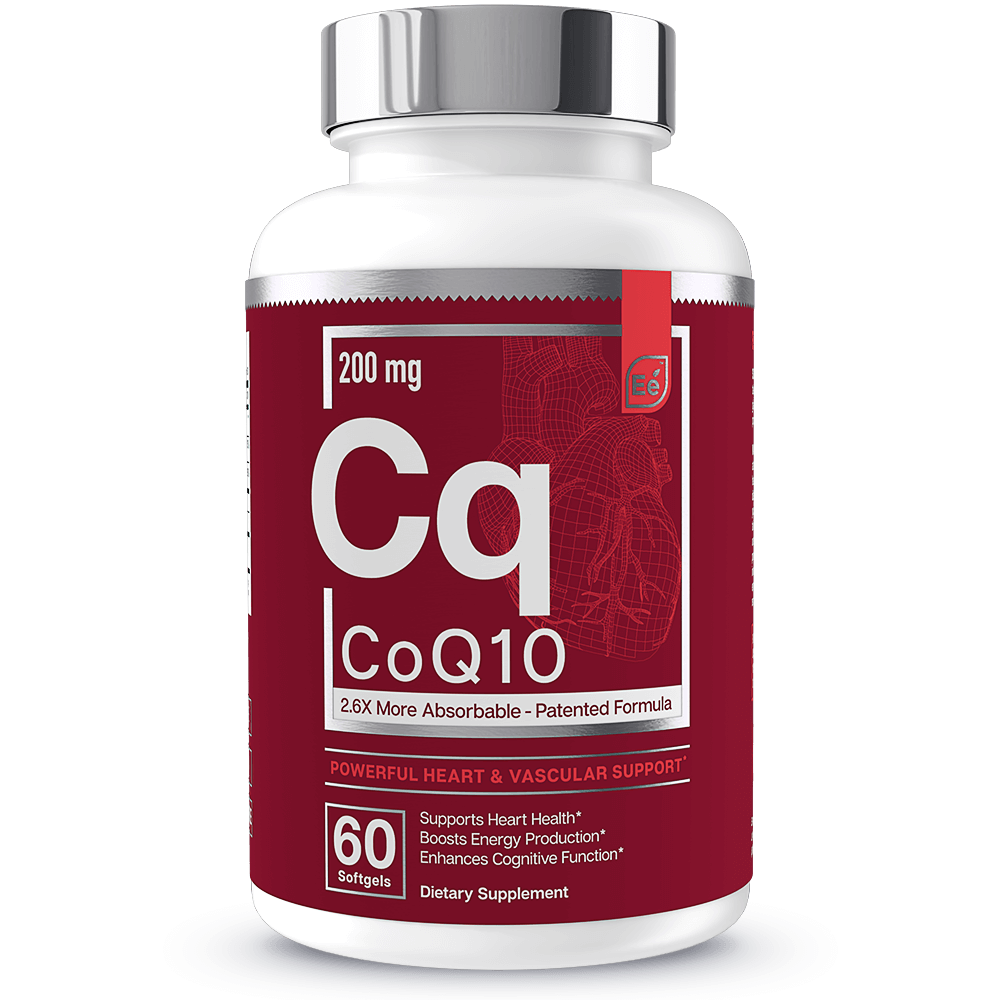Lipase Enzyme Is a Vital Warrior for Those Battling IBS
8 minute read

Enzymes are responsible for stimulating chemical processes and reactions in our bodies. Without enzymes, our internal reactions would be too slow for us to survive. Lipase, which is released from the pancreas, is the most important digestive enzyme.
| Related: Celiac Sufferers Find Relief with Active Proteolytic Enzymes |
The digestive enzyme travels to the small intestine where it functions to help the body process and absorb fats. Its ability to break down fats not only helps with digestion but has been shown to help with serious digestive conditions, like celiac disease, as well as conditions like cystic fibrosis.
What Lipase Levels Tell You About Health
Deficient levels could be to blame for digestive problems. In order to find out your lipase levels, you will need to have a blood test that requires fasting 8 hours beforehand. Lipase testing can help to diagnose pancreatic diseases because high amounts of lipase in your blood would indicate pancreatic injury of some kind.
Elevated lipase levels can help you discover and diagnose bowel problems or celiac disease, as well as duodenal or pancreatic cancer. It is important to remember that you can have high lipase levels with a perfectly functioning pancreas but it is always smart to check.

How Does Lipase Work?
Lipase hydrolyzes fatty particles such as triglycerides into smaller fatty acid and glycerol components. By splitting fats into smaller particles, intestinal absorption is much easier.
Lipase is usually found in blood, pancreatic products, intestinal and gastric juices as well as adipose tissue. As we age, digestive enzyme production starts to decrease, making it important to monitor lipase levels.
Typically, lipase supplements are taken in combination with protease and amylase, two other valuable enzymes. Lipase breaks down the fats, protease breaks up the proteins, and amylase tackles the carbs. At the proper levels in our body, this dynamic trio provides optimal health benefits to our digestive system.
Risks of Low or Elevated Lipase Levels
Triglycerides are important for energy, but high levels can increase risk of heart disease. Elevated triglyceride levels can be a sign of metabolic syndrome, a condition involving any combination of these health issues: abdominal obesity, high blood sugar, high blood pressure or low HDL (good) cholesterol.
| Related: What Are Digestive Enzymes? |
7 Conditions Helped With Lipase
Because of its ability to aid and support the digestion of fats, lipase is able to contribute to overall health and body function. While most people will not need more than the levels they have, there are certain health conditions where a little extra lipase can go a long way.
1. IBS
IBS (irritable bowel syndrome) is a common disorder affecting the large intestine, causing uncomfortable symptoms, such as cramping, bloating, gas, constipation, and diarrhea. While the exact causes are not known, it has been shown that digestive enzymes like lipase can help with the symptoms.
| Related: Digestive Enzymes Can Reverse GERD Damage |
IBS has been linked to exocrine pancreatic insufficiency, which is the inability to digest food properly because of a lack of enzymes.
2. Celiac Disease
This is an autoimmune disease where an inflammatory response is initiated in response to gluten. This response causes massive damage to the small intestine tissues.
This damage is serious because the small intestine is responsible for the absorption of most of our nutrients. With celiac disease, this absorption process comes to a halt, leading to pain, bloating, weight loss, and fatigue.
Once diagnosed, it is imperative to follow a strict gluten-free diet. Additionally, enzymes such as lipase help to treat the disease. A study with children receiving pancreatic enzyme therapy showed a weight increase in patients indicating the positive effects of lipase for this disease for both adults and children.
3. Nutrient Absorption
Getting the nutrients you need to stay healthy is more than just eating right. Without lipase present in your digestive tract, the intestines are not able to properly absorb nutrients from food. When it comes to malabsorption problems, pancreatic enzyme therapy is the top of the list for effective solutions.
4. Weight Loss
Several years ago, research scientists were able to manipulate lipase by flipping a molecular switch, causing the enzyme to either be active or inactive. In doing this, lipase actually worked three times harder and increased fat digestion from 15 to 45 percent. This is great news for people struggling with obesity and weight-related health issues, like diabetes and heart disease.

5. Cardiovascular Health and Cholesterol
Due to its ability to break down fats, a lipase deficiency can cause unhealthy levels of cholesterol. People with lower lipase levels also tend to have higher cholesterol levels and fat in the bloodstream.
| Related: Why It's Important Your Digestive Enzymes Are Plant-Based |
Additionally, lower lipase levels leads to increased triglyceride levels, which contributes directly to cardiovascular problems. High triglyceride levels can cause pancreatitis and heart disease. Elevated levels also have links to type 2 diabetes, obesity, and metabolic syndrome.
6. Cystic Fibrosis
CF is an inherited disorder that disrupts the functions of epithelial cells which line each of our vital organs. The kidneys, liver, skin, respiratory, and reproductive systems are all impacted.
The disorder is characterized by the production of an abnormal and sticky mucus, which blocks pancreatic enzymes like lipase, from getting to the intestines. This results in serious nutritional deficiencies.
As a result, it is recommended that CF patients take pancreatic enzymes to help the body better absorb the necessary nutrients and energy from food.
7. Gallbladder Health
The gallbladder, a small organ located behind the lobes of your liver, is responsible for storing bile to be secreted by the liver. This bile, combined with lipase, helps to digest fatty foods.
Therefore, a lipase supplement is strongly recommended for those with gallbladder problems or who do not have a gallbladder. The removal of a gallbladder (cholecystectomy) is fairly common.
Patients who have had a gallbladder removed will have difficulties digesting fats. Supplemental lipase can help support the gallbladder’s function, as lipase helps to digest fat and to improve the use of bile.
Where to Find Lipase
Which foods are sources of lipase?
♦ Avocados
♦ Pine nuts
♦ Coconuts
♦ Lentils
♦ Chickpeas (garbanzo beans)
♦ Oats
♦ Eggplant
♦ Walnuts
If you need a lipase supplement, look for a full-spectrum enzyme blend.
Possible Side Effects
Although generally considered to be safe for most people, lipase supplements may have some side effects, which may include nausea, cramping or diarrhea. If you are pregnant, breastfeeding or are already taking digestive enzymes, talk to your physician first.
In some cases of cystic fibrosis, particularly high doses of lipase can actually worsen symptoms, so get advice from your physician before buying any supplements.
The Bottom Line
Always check with your physician before making dietary changes or taking supplements of any kind.
Lipase is responsible for breaking down fats and supporting the absorption of much needed nutrients. Monitoring your lipase levels is important because too much or too little can be harmful to your health.
If you have been experiencing some digestive issues, get tested. Low lipase levels are an easy fix to help you stay in optimal disease-fighting shape.
Read Next >>> Daily Digestive Enzymes Help Improve Colon Health

-
https://draxe.com/lipase/
-
http://ispub.com/IJGE/4/1/10004
-
https://www.ncbi.nlm.nih.gov/pubmed/21796867
-
https://www.forbes.com/sites/melaniehaiken/2012/08/24/big-weight-loss-news-scientists-discover-switch-that-turns-on-fat-burning-enzymes/#424d3e95140a

























 Health Guides
Health Guides
 Latest Research
Latest Research


